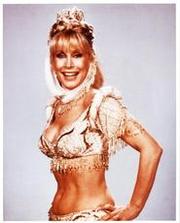The best proof you’re in a political crisis comes from comedy.
During a crisis, comedy comes in two types:
- Issue comedy, attacks on the current Thesis masquerading as jokes.
- Fantasy comedy, humor without reference to any reality.
Comedy doesn’t always swing this way. Satire against politicians is a staple, but most of the time it’s fairly gentle, and everyone (even the powerful) can laugh along. This has been the heart of Saturday Night Live since its 1975 premiere. Yet that show has been on life support for several years now. (Now you know why.)
There is also reality comedy, which appears once a Thesis is set. That is, comedy that lives in places real people live, and which teaches the lesson of the present Thesis. All the Norman Lear comedies were of this type, teaching the idea of conflict as normal, even reasonable. So were most of the Frank Capra comedies of the 1930s and 1940s. Once the roles are set, the die is cast, and playing off them in the real world becomes both easy and safe.
Today we have a perfect comedy of crisis. The Daily Show and Colbert Report are very pointed attacks on the powerful, and their assumptions. Before it got serious Keith Olbermann’s Countdown show was meant to be comedy of this type. At the same time we have the unintended comedy of reality shows, always set in an unreal situation — American Idol, Survivor, The Bachelor.
My point today is the exact same dichotomy existed 40 years ago, at the time of the last crisis. The issue comedy came from That Was The Week That Was, the Smothers Brothers, George Carlin, Lenny Bruce. It was edgy, it was (in many ways) quite serious, it was highly controversial. At the same time we had fantasy comedy — Green Acres, Gilligan’s Island, I Dream of Jeanie. All set in an artificial, unreal world.
Again, in the early 1930s, the same two strains existed. On the one hand, Will Rogers, The New Yorker and H.L. Mencken. On the other hand, Jack Benny, Laurel & Hardy. Fantasies.
It should be obvious why this dichotomy exists. During a time of
crisis there are many important things which can’t be said without
comedy. The assumptions underlying policy are so ingrained that serious
speeches against it would be automatically rejected, not opposed but
rejected outright. The only way the gap between what is assumed and
what is real can be addressed is through comedy. At the same time,
those who follow the Thesis will retreat into fantasy, escape,
unreality, because to face of reality is just too painful and
horrible to contemplate.
What does this mean for the future? It means the next acts in the
lives of Jon Stewart and Stephen Colbert will surely come a few years
after the crisis is settled, which is most likely to happen next year.
If they’re smart they can live on their present glory for the rest of
their lives, applauded at the Friar’s Club the way, say, George Carlin
is now.
For the fantasy comics the news is not so good. They will always be
locked into this time and these places. They will never escape them.
They will either embrace their fate, as Barbara Eden did (or Adam West,
but I always found Barbara more attractive), find new roles as Larry
Hagman did, or simply run away as Bob Denver did. But they will always
be, in the public mind, exactly what they are today.
Which is the funniest joke of all. Those who deal in reality may see their careers survive. Those running from it, not so much.











